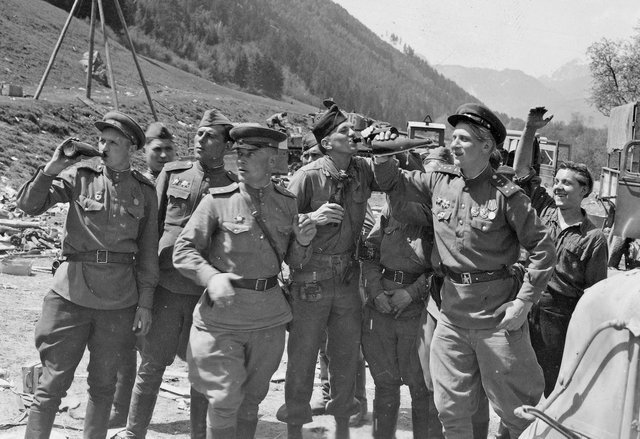
Here are the memoirs of time in the military school in Birsk in November 1941 - December 1942. L. Rabichev retained: "Officers of all ranks of the school repeatedly repeated Suvorov's famous winged phrase:" It's hard to teach - it's easy to fight! "Breakfast, apparently, was part of the concept of teaching.
The sergeant-major assigned five minutes for breakfast. Two cadets cut several loaves of black bread into slices.
They were in a hurry, and the slices turned out to be thick, others thin, it was a lottery, there was no time to argue and argue. On the table was already a soup of half-rotten kielks, the sprat had to be swallowed with bones. On the second, everyone received millet porridge "RABICHEV L." War will all write off, "memoirs, illustrations, documents, letters. M. 2008, p. 76 - 77. If there was money, then the products were bought in civilian or military shops. In the camps near Noginsk "one could sometimes get bread in a stall, although the queues behind him were colossal. I often used the fact that I had money: paid, and I got bread. "
Cadets of the 2 nd Vladivostok Military Infantry School, located in Komsomolsk-on-Amur, during the ski training paved the route not far from the store, the shelves of which were filled with crabs only. The morning portion of pearl barley or oatmeal porridge served as crabs. Since the money to buy food was not for everyone, illegal exchange trade began and simple transactions took place: "On the first day I could not eat any soup or porridge and changed them for four compotes. It turned out that there was a proven practice of exchanges.
or soup - two compotes, for the second - four, for bread and sugar - the second, or vice versa. " PYLYTSYN A. V. Penalty, or How an officer's penalty battalion reached Berlin. St. Petersburg. 2003 VV Syrtsilin, who was fed up with vobla and bream on the way, changed them to potatoes at half-plants. In the city, he, selling potatoes, bought money for the money he received, some of which he immediately changed to tobacco. (Heroes of Patience, Great Patriotic War in Sources of Personal Origin, Collection of Documents, Krasnodar, 2010, p. 87.)